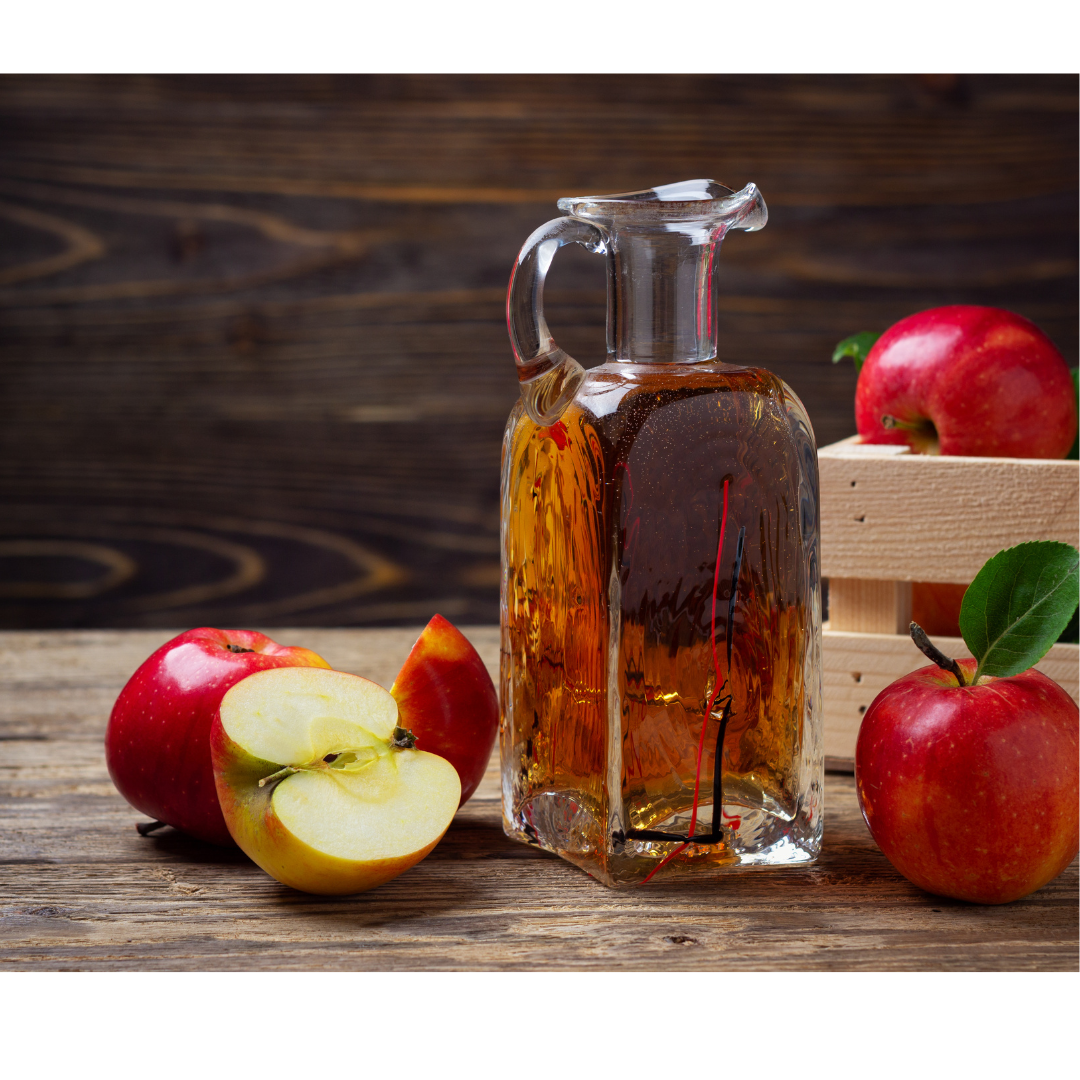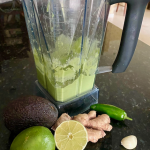
Apple Cider Vinegar: Medical Miracle or Myth?
Apple cider vinegar (ACV) is a useful tool in the kitchen and can be used in anything from marinades to dressings to sauces.
Recently this folk remedy has been touted to fight infections, manage stomach acid and indigestion, melt off body fat and manage skin conditions. ACV has been deemed a “cure-all, “and while this may be somewhat overstated, it clearly has been shown to have some merits.
Apple cider vinegar is produced with the fermentation of crushed apples. The vinegar, raw and unfiltered (as it should be used), contains trace amounts of B vitamins, Vitamin C, and minerals like potassium and magnesium. The fermented product also contains some powerful antioxidants and flavonoids like gallic acid, catechin, caffei acid, and ferulic acid. The fermentation also produces beneficial bacteria and enzymes that may boost gut health by improving immunity and digestion. Early practitioners like Hippocrates reported using apple cider vinegar to fight off infections over 2500 years ago. While we currently do not recommend this, it does appear that ACV has anti-microbial properties due to its acetic acid content. Acetic acid alone has known anti-microbial actions. The acetic acid found in apple cider vinegar also has an anti-glycemic effect, which helps regulate blood sugar and insulin levels and may suppress body fat accumulation.
More clinical research is needed to back up many of the ACV claims. However, sufficient evidence suggests it can be used as a health promoter without harm.
There are a few recommendations if you decide to add this to your home remedy collection.
- Apple cider vinegar should always be diluted. Never drink it straight as the acid can damage tooth enamel and cause esophageal irritation. Start by adding 1 teaspoon of ACV to 8 oz of water. You can increase this amount but should probably not exceed 1 tablespoon per 8 oz three times a day.
- If you heat ACV, you will lose many of its nutritional benefits, so it is best to use it in dressings or add to sauces after the heating process.
- Make sure you purchase raw, unfiltered ACV. The cloudy appearance is the “mother” or the byproduct of the fermentation starter that contains enzymes, proteins, and bacteria. If the ACV you purchased appears clear, it does not have the health benefits and is more than likely processed. A few we like are Bragg’s Organic Apple Cider Vinegar or Lucy’s Organic Apple Cider Vinegar.
- Apple cider vinegar in gummies or pills have not been shown to be beneficial and is generally processed and has added sugars or fillers.
So here are some simple ways to incorporate ACV into your daily foods and practices.
- Salad Dressing: Replace Apple cider vinegar with any vinegar in a salad dressing. A simple salad dressing includes 1⁄2 cup ACV, 1/3 cup Extra Virgin Olive Oil, 2 t Dijon mustard, 1 T local honey, and 1⁄2 t salt and 1⁄4 t pepper.
- Marinades: Add Apple cider vinegar to marinades. Use in place of citrus or vinegar in the recipe. Marinading meats in ACV before grilling can help to reduce the carcinogenic heterocyclic amines (HCAs), which can form on meats cooked on high heat.
- Soups & Sauces: Add 2 T of ACV to soups or bone broth or stews after the heating process is complete. RECIPE: Tangy Apricot Sauce
- Smoothie: Add 1 T of Apple cider vinegar to your morning smoothie.
- Digestive Support: Add 1 T of Apple cider vinegar to 8 oz of room temperature water and drink before a meal. This can provide help with the breakdown of foods and can act as an anti-gas tonic. Drinking this concoction before meals may also reduce the glycemic effect of the meal and help in weight management and blood sugar stabilization. In addition, adding 1 T of ACV to 8 oz of water may aid in the prevention or treatment of occasional heartburn.
- Skin & Hair: Apple Cider Vinegar is found in many hair and skin products. You can make your own by combining 1/3 cup of ACV and 4 cups of filtered water. Spritzing on hair after shampooing can help to remove product build-up and combat dandruff and mild scalp irritation. A DIY toner of 1/3 cup of ACV and 1 cup of water can be used with a cotton ball twice a week to restore pH balance and natural skin oils.
- Bugs: If you can tolerate the smell, ACV can also repel mosquitos. A DIY repellent can be made by 1 cup of ACV and 1⁄4 cup of water.


